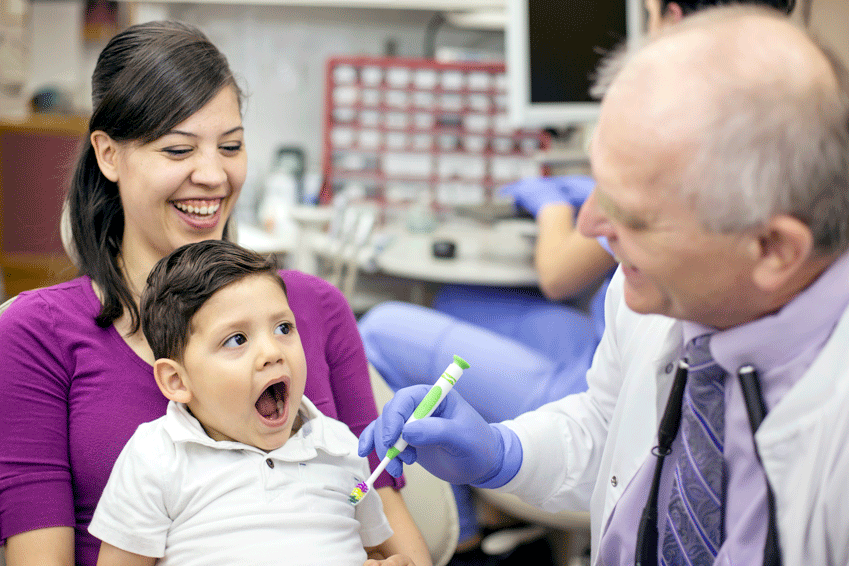The CDC reports that, in the U.S. alone, about one in five children between the ages of two and five have untreated cavities. Whose fault is this, anyway?
With so much sugar and other stimulants floating around these days, it’s easy to fall prey. Parents are often uninformed about, or fail to enforce, rules for diet, sleep, exercise and brushing habits that can lower the probability of tooth decay – especially with very young children.
In addition, many parents believe their child does not need to see a dentist before their permanent teeth come in. On the contrary, experts in children’s dentistry recommend that dental care should begin around six months after the first tooth breaks the surface of the gum line. At this point and possibly even sooner, cavities could begin to form unless good oral hygiene is implemented, under the care of a dentist.

Let’s explore why it’s so important to take control of your children’s dental health…
Watch this cool TedEd series video on cavity causes and prevention!
How Do Cavities Form?
To understand how a child as young as six months can develop cavities, it helps to learn what causes cavities.
The mouth naturally harbors bacteria. Bacteria thrive on mono-saccharides, simple sugars, which then become acid plaque, eating away at the enamel of the teeth.
Baby teeth are especially vulnerable to this acid plaque because the enamel is not yet hardened, and more porous than in adult teeth. In fact, tooth enamel takes up to seven years before it is completely hardened.
Children commonly consume abundant amounts of simple sugars in the form of milk, apple juice and other treats that parents unwittingly give them. Dietary habits like this are one of the major causes of cavities in young children. Once the first tooth has begun to form, there is potential for a cavity to develop.
It’s The Parents.
Preventing cavities in children as young as two is entirely the responsibility of the parents, since children this young are unable to care for their own teeth. Some simple dietary and behavioral modifications, in addition to routine teeth brushing, can greatly decrease the potential for cavities.

No. 1. Reduce or eliminate juice from the diet. Apple juice is a popular drink choice, but it is loaded with simple sugars. There are 24 grams of naturally occurring sugar in one cup of unsweetened apple juice, and most commercial apple juice has even more added sugar.

No. 2. Encourage the drinking of water. Water is a fine substitute for juice in a child’s diet. It helps rid the mouth of excess bacteria. In some towns, fluoride is added to the water, which many dentists believe also helps protect tooth enamel.

No 3. Discourage pacifier use as soon as possible. Pacifiers often get dropped and reinserted into children’s mouths. Worse, many parents wet the pacifier with their own saliva, which introduces foreign bacteria into the child’s mouth. Though babies and young children may come to depend on a pacifier, when teeth start to come in, it’s best to try and break the habit.
Parents should seek out a practitioner experienced in children’s dentistry as soon as the first tooth makes an appearance. Checkups every six months thereafter should be sufficient to ensure a lifetime of healthy teeth.
Consult your own dentist today for an appointment or referral for your child.


